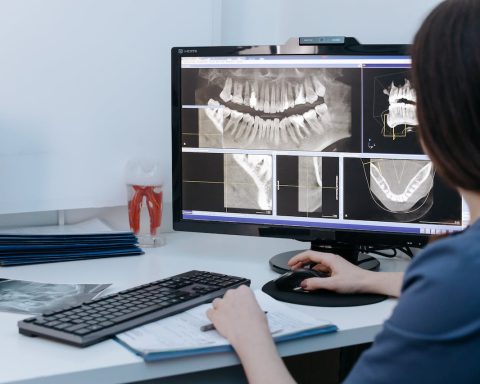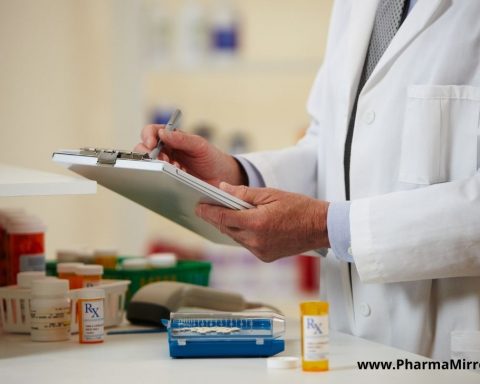Almost two decades of intensive research may soon lead to a major development in the search for a treatment of type 1 diabetes, one of the leading causes of death in the entire world.
The recent findings from an FDA-approved clinical trial testing a possible type 1 diabetes vaccine made the whole medical world rejoice, most especially those who are suffering from the so-called disease of the 21st century. The good news was presented by none other than the principal investigator, Dr. Denise Faustman, MD, Ph.D., director of the Massachusetts General Hospital Immunology Laboratory (MGH-IL) during the 2017 American Diabetes Association 77th Scientific Session.
Dr. Faustman and her team may soon find a cure, as they are now moving to the phase 2 trial of the Bacillus Calmette-Guerin (BGC) vaccine, a known tuberculosis vaccine that could also combat type 1 diabetes.
Current Picture of Diabetes Worldwide
In the USA alone, 1.25 million people suffer from type 1 diabetes. In 2015, data from the World Health Organization (WHO) also revealed that 1.6 million deaths were linked to diabetes, which is also continuously increasing in middle and low-income countries.
Every year, The American Diabetes Association (ADA) publishes a comprehensive guide that includes new and updated proposals and interventions to preserve the well-being and psychological health of people with diabetes. ADA always highlights the importance of patient-centered care especially on effectively delivering diabetes care that is effective and reactive to the patient’s preferences and necessities.
Being diagnosed with diabetes is very overwhelming and any diagnosis presents a learning curve. During these times, becoming the best ally for your loved one to be able to support and help them enjoy the healthiest lives possible, is the first step towards showing care and exhibiting their value.
FDA Gives the Go Signal
The Food & Drug Administration (FDA), the leading organization responsible for protecting the public health, is very supportive on this milestone and in fact, they already gave the go signal to Dr. Faustman together with her team to test a large group of long-term diabetic patients, a major part of phase 2 clinical trials.
Dr. Faustman is confident about these various developments. “We’re in full action mode! The phones are ringing off the hook.” She shares.
As expected, there will be an overflowing number of volunteers for the clinical trials but the MGH-IL will examine and select only one hundred fifty adult participants to be qualified for the ongoing study. The participants will be long-term or established diabetic patients and not newly diagnosed patients.
Type 1 Diabetes Overview
Type 1 diabetes, previously known as insulin-dependent, juvenile or childhood-onset, was described by the American Diabetes Association (ADA), as a condition where the body is not capable of producing insulin. The hormone insulin is responsible for the transport of glucose from the bloodstream into the cells of the body.
This autoimmune disease presents an overall damage of pancreatic islets, which plays a major role on the endocrine activity of the pancreas. The destruction of the glucose-sensitive and insulin-producing beta cells is a result of the autoreactive T cells, which are not effectively controlled by the regulatory T cells.
BCG in Type 1 Diabetes
Bacillus Calmette-Guerin or BCG vaccine is primarily used against tuberculosis, aside from its function in treating bladder cancer, and has been used for nearly a century. It is derived from a strain of weakened bacteria still strong enough to initiate an immune response, which includes the production of a natural substance in the body called tumor necrosis factor (TNF). The production of TNF may stop the disease process in advanced patients with type 1 diabetes.
By temporarily elevating the TNF, the “bad” white blood cells or T cells attacking and destroying pancreas cells are eliminated. The pancreas is responsible for the production of insulin in our body.
Phase 1 Clinical Trial
Faustman’s laboratory performed a double-blind, placebo-controlled study where BCG was administered to adults with type 1 diabetes for an average of 15 years. The exposure to BCG was practically safe for the subjects with minimal reactions related to only mild inflammation at the injection site.
The BCG treatment helped eliminate the “bad” white blood cells that contribute to type 1 diabetes and it temporarily restored the ability of the pancreas to produce small amounts of insulin.
Phase 1 Major Findings
- The BCG vaccine given in multi-dose was generally safe for type 1 advanced diabetes patients.
- A targeted death of the “bad” T cells that attack the insulin-secreting islets was recorded, an indication that BCG can potentially reverse type 1 diabetes.
- After BCG vaccination, it was observed that there was an increased restoration of pancreatic insulin secretion.
Phase 2 Clinical Trial
During Phase 2, a randomized, double-blind, placebo-controlled study will be conducted to see if repeat injections of BCG can benefit those with advanced type 1 diabetes by putting the disease into remission and helping in the prevention of diabetes complications.
Participants will range from the ages of 18-65 and they will be receiving 2 injections of BCG or placebo spaced 4 weeks apart during the first year, then 1 injection per year for the succeeding 4 years.
Faustman Lab Asks Support To This Program
As this is a philanthropic program, Dr. Faustman encourages everyone to help her laboratory continue and develop these human studies geared towards reversing advanced type of diabetes.
The trials are not requiring constant immunosuppressive drugs or any type of cell transplants and these clinical trials are meant to kill only the disease-causing cells, thus sparing healthy cells. Moreover, the trial employs a safe and inexpensive generic drug, BCG.
Donations through check will be payable to “Massachusetts General Hospital” (subject: Faustman Diabetes Trials) and can be mailed to Diabetes Clinical Trial c/o Dr. Denise Faustman.
Dr. Faustman has always been very thankful for the support she’s receiving over the years and she has high hopes that this study will move forward in her pursuit to reverse and treat diabetes.








